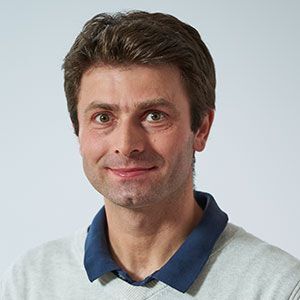Research Focus
Willem Frankenhuis is an evolutionary and developmental psychologist. He argues that people who grow up in harsh and unpredictable environments develop enhanced social-cognitive abilities for solving problems in high-adversity contexts. This approach both complements and challenges prevailing deficit models, which focus on impairments in learning and behavior. Why should knowledge about the strengths of stress-adjusted youth (of which we know so little) be any less useful than knowledge about their impairments (of which we know so much)? Ultimately, Willem Frankenhuis hopes to uncover a high-resolution map of the social-cognitive skills and abilities of stress-adapted youth.
What have I achieved during my fellowship?
In the past three years, the hidden talents program — which focuses on abilities that are enhanced by adversity — has developed from an original and emerging idea to an established field of research, with partial support in an empirical literature that is characterized by transparency. My research program is already changing the ways that scientists, practitioners, and policymakers think and is contributing to a more well-rounded view of the development of social and cognitive abilities in adverse conditions.
Over the past years, the hidden talents approach has also started building closer connections with other strength-based approaches, such as resilience research, which focuses on the protective factors that enable people who live in adverse conditions to make the most of their challenging life circumstances; positive youth development and social justice approaches that develop policy and interventions that harness strengths alongside addressing vulnerabilities; and the successful intelligence approach, which documents the abilities that people need to achieve their life goals within a specific cultural context. As the connections between these strength-based approaches grow, as well as their connections with deficit approaches (which focus on impairments that are more likely to develop in adverse conditions), the fields of developmental psychology and education will move towards more integration.
My work has been published in highly visible scientific venues (e.g., Developmental Science, Current Directions in Psychological Science, Trends in Cognitive Sciences), featured in prominent news outlets (e.g., The Atlantic, APS Observer), and in high-profile public venues (e.g., MoMA in New York). I have actively disseminated my ideas and findings in the organizations that I work with (e.g., Kansenfabriek in Arnhem, Young in Prison in Amsterdam).
My plans for the future
I would like to organize the first-ever international conference on “hidden talents” in 2023. Since publishing my original hypothesis in 2013, the study of stress-adapted skills and abilities has taken off in exciting and productive ways. Not only did I co-direct a research network on Adaptations to Childhood Stress, but other researchers have also begun developing their own independent research programs on “hidden talents”, with initially promising results and associated publications. In addition, I have been learning about relevant research that I used to be unfamiliar with, and about relevant research in adjacent fields (education, biology, neuroscience, economics, and anthropology). There is great scope for synergies between this work and my hidden talents approach. The conference will facilitate such synergies. I will invite scholars from each of these fields (e.g., Biologist Ondi L. Crino, Economist Sendhil Mullainathan), with focus on inclusivity and diversity and wide representation of scholars that are currently not interacting with each other.


